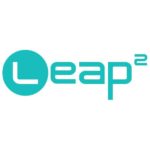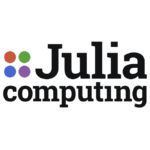In this video, academics and industry experts weigh in on the potential of oneAPI, the new, unified software programming model for CPU, GPU, AI, and FPGA accelerators that delivers high compute performance for emerging specialized workloads across diverse compute architectures.
Q-CTRL Releases Control Tools for Improving Quantum Hardware Performance
Today quantum startup Q-CTRL announced the Beta release of its professional-grade BOULDER OPAL software tools for the quantum computing market. “BOULDER OPAL is an advanced Python-based toolkit for developers and R&D teams using quantum control in their hardware or theoretical research. Technology agnostic and delivered via the cloud, BOULDER OPAL enables building and outputting new error-robust logic operations for even the most complex quantum circuits. The result for users is greater performance from today’s quantum computing hardware.”
Podcast: Simplifying the Deployment of HPC Tools and Libraries
In this Let’s Talk Exascale podcast, Sameer Shende from the University of Oregon describes progress on the Extreme-scale Scientific Software Stack. E4S is a community effort to provide open-source software packages for developing, deploying, and running scientific applications on HPC platforms. “Container technology is promising because it enables the user to take an existing set of libraries and tools, consider the dependency metrics of a particular software product, and deploy the software efficiently. And there’s only one kernel that’s running when a container is deployed, unlike other virtualization approaches. So it’s very efficient.”
D-Wave Leap 2 Quantum Cloud Service is Built for Business
Today D-Wave Systems announced the immediate availability of Leap 2, the first quantum cloud service designed for developers and organizations to easily build and deploy real-world hybrid quantum applications with practical impact. “With Leap, we opened the door to real-time quantum access. With Leap 2, we’re giving developers and businesses the key to business applications. By delivering a hybrid offering, we’re removing many of the barriers related to complexity and problem size,” said Alan Baratz, CEO of D-Wave.
oneAPI: Single Programming Model to Deliver Cross-Architecture Performance
Bill Savage from Intel gave this talk at the Intel HPC Developer Conference. “Learn about oneAPI, the new Intel-led industry initiative to deliver a high-performance unified programming model specification spanning CPU, GPU, FPGA, and other specialized architectures. It includes the Data Parallel C++ cross-architecture language, a set of libraries, and a low-level hardware interface. Intel oneAPI Beta products are also available for developers who want to try out the programming model and influence its evolution.”
Compute Canada’s Magic Castle: Terraforming the Cloud for HPC
Félix-Antoine Fortin from Compute Canada gave this talk at FOSDEM 2020. “Magic Castle uses the open-source software Terraform and HashiCorp Language (HCL) to define the virtual machines, volumes, and networks that are required to replicate a virtual HPC infrastructure. In this talk, we will give a live demonstration of the creation of a cluster.”
Appentra Releases Parallelware Trainer 1.4
Today Appentra released Parallelware Trainer 1.4, an interactive, real-time code editor with features that facilitate the learning, usage, and implementation of parallel programming by understanding how and why sections of code can be parallelized. “As Appentra strives to make parallel programming easier, enabling everyone to make the best use of parallel computing hardware from the multi-cores in a laptop to the fastest supercomputers. With this new release, we push Parallelware Trainer further towards that goal.”
Julia Computing and GPU Acceleration
Julia is already well regarded for programming multicore CPUs and large parallel computing systems, but recent developments make the language suited for GPU computing as well. The performance possibilities of GPUs can be democratized by providing more high-level tools that are easy to use by a large community of applied mathematicians and machine learning programmers.
Podcast: SCR Scalable Checkpoint/Restart Paves the Way for Exascale
A software product called the Scalable Checkpoint/Restart (SCR) Framework 2.0 recently won an R&D 100 Award. In this episode, Elsa Gonsiorowski and Kathryn Mohror of LLNL discuss what SCR does, the challenges involved in creating it, and the impact it is expected to have in HPC. “SCR enables HPC simulations to take advantage of hierarchical storage systems, without complex code modifications. With SCR, the input/output (I/O) performance of scientific simulations can be improved by orders of magnitude.”
Intel’s Kent Moffat describes the exciting new launch of oneAPI
In this video, Kent Moffat, senior product manager from Intel, describes the oneAPI initiative, an ambitious shift from today’s single-architecture, single-vendor programming models to a unified, simplified programming model for application development across heterogeneous architectures, including CPUs, GPUs, FPGAs and other accelerators.













